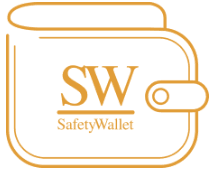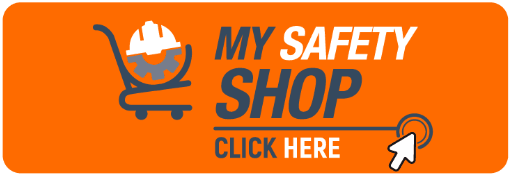Injuries on Duty (IOD)

Injuries on Duty in the Food Drinks and Tobacco Industry
The Food, Drinks, and Tobacco Industry in South Africa flourishes on a foundation of creativity and steadfastness, essential ingredients to cater to diverse tastes and demands. However, this vibrant sector is not immune to the challenges of workplace safety. Injuries on Duty (IOD) represent a significant concern, causing not just physical and emotional harm to employees but also leading to operational disruptions and financial strain for businesses.
MAKROSAFE, as a proud Authorised Dealership of SafetyWallet, comprehends the specific hurdles faced by operators within the food, drinks, and tobacco sectors. Our dedication lies in forging partnerships with you to nurture an environment where safety is not just prioritised but integrated into the very ethos of your work culture.
If you are an employer within this dynamic industry, concerned about mitigating the risks of Injuries on Duty, MAKROSAFE is here to assist. We are committed to enhancing your workplace safety and cultivating a secure and health-conscious setting for your entire team.
The Profound Impact of IOD
The repercussions of IOD within the Food, Drinks, and Tobacco Industry are twofold:
For Businesses: The aftermath of workplace injuries encompasses more than just the immediate medical care. It involves extended absenteeism, disruptions in production and service delivery, escalated costs due to workers' compensation claims, and potential legal challenges arising from non-compliance with safety regulations.
For Employees: Beyond the physical discomfort, injured workers might confront emotional turmoil and financial insecurity stemming from unforeseeable work gaps and accumulated healthcare expenses.
Any questions? Kindly leave your details for one of our Expert Consultants to give you a no-obligation Call.
Tackling the Unique Challenges
Several factors exacerbate the risk of IOD in this industry:
- Complex Operational Environments: From temperature extremes in food storage areas to the handling of chemicals in flavourings and preservations, each operational aspect introduces distinct risks.
- Pace and Pressure: The rush to meet delivery deadlines or maintain production speed can lead workers to shortcut safety practices, inadvertently elevating the risks of accidents.
- Resource Allocation: Balancing operational costs with safety investments can be challenging, potentially leading to compromises on safety training depth, equipment maintenance regularity, and adequacy of Personal Protective Equipment (PPE).
- Communication Barriers: A culture of reticence, where employees hesitate to report safety incidents or concerns, can significantly hamper effective hazard identification and resolution.
Cultivating a Safety-First Approach
MAKROSAFE empowers businesses in the Food, Drinks, and Tobacco Industry to enhance safety proactively through a comprehensive range of services:
- Specialized OHS Compliance Audits: Our thorough audits delve into the unique operational aspects of your business, ensuring full compliance with the Occupational Health and Safety Act (OHSA).
- Tailored Safety Training Programs: Our training encompasses crucial areas like safe food handling practices, machinery operation, and the management of hazardous materials, equipping your team with vital safety knowledge and skills.
- Customised Safe Operating Procedures (SOPs): We collaborate closely with you to craft SOPs tailored to your operational needs, promoting a uniform safety standard throughout your business.
- Building a Safety Culture: Our approach extends beyond mere compliance, aiming to instil a pervasive culture of safety where all team members are encouraged to voice concerns, contribute to safety dialogues, and uphold mutual safety commitments.
Streamlining Compliance with SafetyWallet
As an Authorised Dealership of SafetyWallet, MAKROSAFE offers a robust digital platform streamlining OHS compliance management. SafetyWallet enables you to:
- Keep digital records of safety documents for swift access and management.
- Facilitate safety training and introduction programs for new hires.
- Execute online risk evaluations and incident reporting.
- Access an extensive library of safety resources and best practices tailored to the food, drinks, and tobacco sector.
If you have any questions, please feel free to speak to one of our Experts
Things that you should consider when investigating incidents include:
- Who is involved?
- Where and when did the incident occur?
- What task or work was being performed?
- How did the incident occur, for example, was a client, chemical or equipment Involved?
- What were the events leading up to the incident?
In the event of an incident or accident within the workplace, completing an Incident/Accident Report Form is a critical step in documenting the situation comprehensively and taking the necessary corrective actions. Here's a breakdown of the essential components and information to be included in such a form:
Details of the Incident:
- Date and time of the incident: Record when the incident occurred to ensure timely follow-up and investigation.
- Location of the incident: Specify the exact place within the workplace where the incident took place.
- Description of the incident: Provide a detailed account of what happened, including the sequence of events leading up to the incident.
Details of the Individuals Involved:
- Names and job titles of all individuals involved, including witnesses.
- Contact information for those involved, if necessary, for further investigation or follow-up.
- Injuries sustained: Document the nature and extent of any injuries incurred by the individuals involved.
Immediate Actions Taken:
- First aid or medical attention provided at the scene.
- Measures to secure the area and prevent further incidents, such as isolating hazardous areas or equipment.
- Notifications: Record who was notified about the incident (e.g., supervisor, health and safety officer, emergency services) and when.
Investigation Findings:
- Causes of the incident: Analyse and document contributing factors, such as equipment failure, procedural lapses, or environmental conditions.
- Contributory human factors: Note any behavioural or human element that played a role in the incident, such as lack of training or fatigue.
Future Preventative Measures:
- Corrective actions proposed or taken to address the immediate causes of the incident.
- Preventative strategies to mitigate the risk of similar incidents occurring in the future. This might include changes to procedures, additional training for employees, or improvements to equipment or personal protective equipment (PPE) use.
Documentation and Signatures:
- Signatures of the report preparer and a supervisor or health and safety officer to attest to the accuracy of the information and confirm that the necessary follow-up actions have been initiated.
- Date of report completion to monitor the response and investigation timeline.
The purpose of the Incident/Accident Report Form is not only to comply with health and safety regulations but also to serve as a tool for learning and improvement. By meticulously documenting incidents, businesses can analyse patterns over time, identify areas for safety enhancement, and foster a proactive approach to preventing workplace accidents and injuries.
Proactive Safety: A Strategic Imperative
Emphasizing safety serves not merely as compliance adherence but as a critical strategy to protect your most valuable asset—your workforce. Partner with MAKROSAFE today and discover how our solutions can nurture a safer, more efficient, and more motivated work environment. Together, we can:
- Diminish the prevalence and impact of IOD, alleviating associated costs.
- Boost employee morale and health, leading to higher productivity and fewer absences.
- Elevate your stature as a safety-conscious industry leader.
- Create a positive and secure environment where your business and its people can thrive.
Reach out to MAKROSAFE today, and let's collaboratively fortify your Food, Drinks, and Tobacco workforce against safety hazards!
Make Safety a Priority Today!
Any questions? Speak to one of our Experts
Let's empower your workforce to work safely, every day! Unlock a Safer Educational Realm with SafetyWallet Benefits.
As a subscriber of SafetyWallet, you're entitled to a 25% discount on our health and safety courses. The value of safety cannot be overstated, and we're committed to supporting institutions in fostering a secure environment. Take advantage of your SafetyWallet subscription and enhance safety standards within your institution. Our courses are also available for purchase on My Safety Shop, ensuring easy access to the training you need.
MAKROSAFE, as a proud SafetyWallet Authorised Dealership of SafetyWallet, offers a free consultation to assess your current training needs and develop a customised training plan. Contact us today and let's build a brighter, safer future for the South African Food, Drinks, and Tobacco Industry, together. Click on the image below to find a SafetyWallet Solution that suits your business (Branch/Site specific) and get the 21 benefits that includes FREE Health and Safety E-Learning for all staff along with the subscription:
To find out what other Additional Services we offer, please click on the picture below:
SAFETYWALLET In Co-operation with MAKROSAFE and MY SAFETY SHOP





